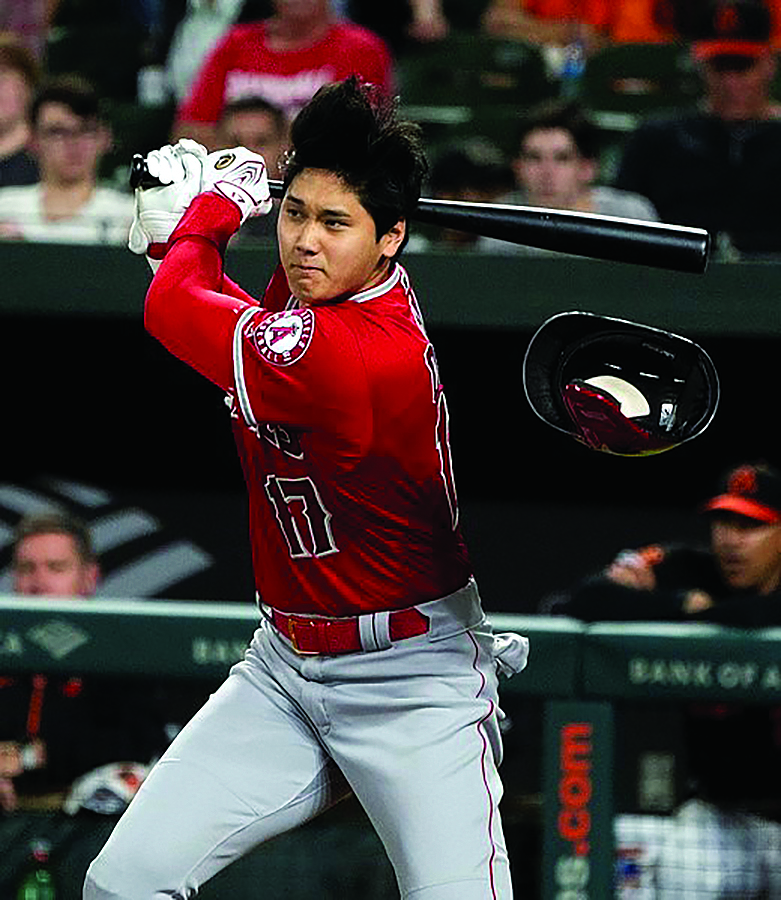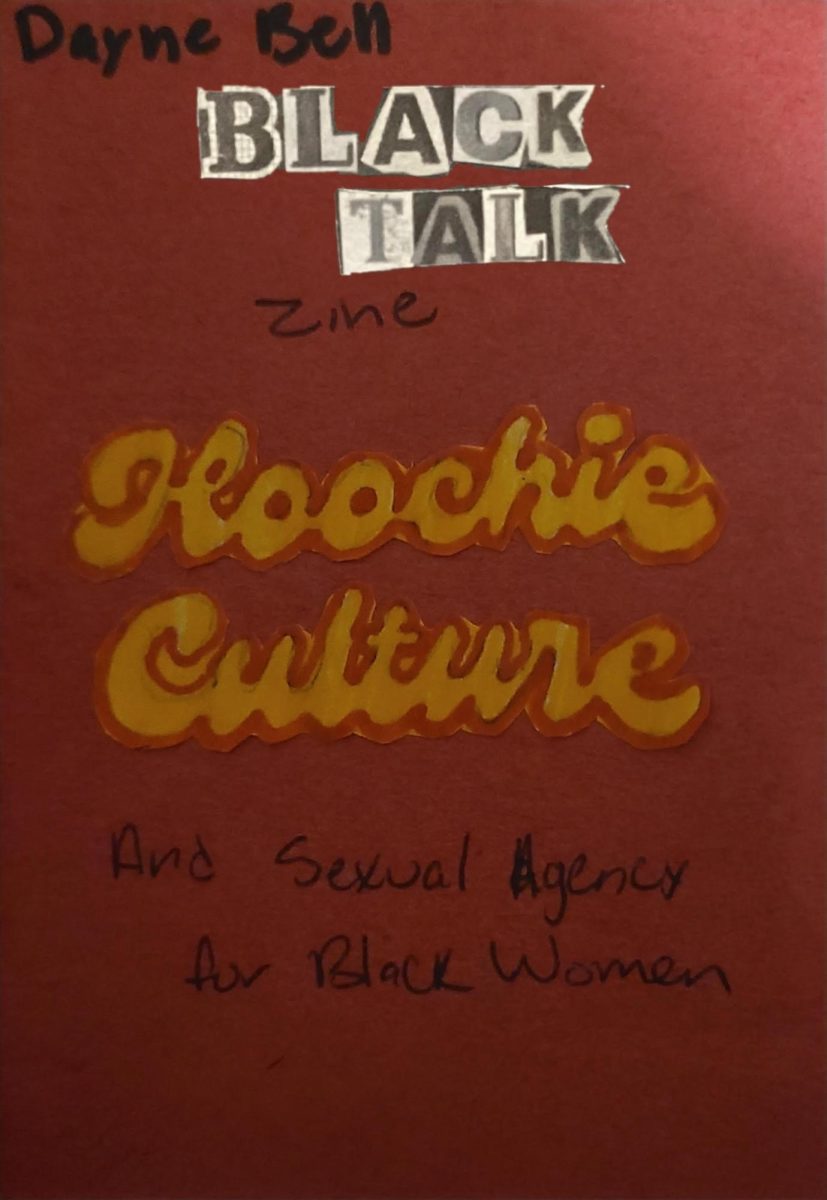It’s well into spring, a time when the sun has started to warm up the Vermont landscape and the mud has finally dried up. However, if you are a fan of Major League Baseball, there is a cloud on the Mudville horizon right now. That’s because MLB’s biggest star, one who has, over the past five years, garnered nothing but international fame and acclaim, now finds himself linked to scandal and shame.
I am referring, of course, to Shohei Ohtani, the phenomenal Japanese baseball player who signed an unprecedented ten-year $700 million dollar contract with the Los Angeles Dodgers on Dec. 11 of last year. Ohtani is often referred to as a “unicorn” because of his unique abilities as a “two-way” player – meaning he is an outstanding pitcher and batter – something that hasn’t been seen since the days of Babe Ruth. But it turns out that Ohtani has been associated with a player in another “sport,” one considered much less wholesome than the Great American Pastime is seen to be.
As I write this, here’s how the whole unsavory story stands so far:
A gentleman named Ippei Mizuhara, longtime interpreter for Ohtani, was fired by the Dodgers in March in the wake of allegations that he committed a “massive theft” by stealing $4.5 million from the baseball luminary. That number has since ballooned to more than $16 million, according to a court report released in early April. It has been alleged that Mizuhara owed a bookmaker in California – where all sports betting is illegal – payment for numerous bad bets he had made. Naturally, speculation originally turned towards whether or not Ohtani himself was the actual losing bettor, with Mizuhara being the “bag man” who merely delivered the cash on the global superstar’s behalf.
The initial rumors prompted Ohtani to host a press conference a few days later, during which he recited a prepared statement and claimed that he had “never bet on baseball or any other sports, or never asked somebody” to place any bets on his behalf.
Rather than putting the matter to rest, Ohtani’s statement, along with the fact that his former interpreter supposedly stole millions from his bank account with nobody noticing, originally only intensified the questions swirling around this whole sorry affair.
And there things stood for a while. Then, the federal indictment came out in early April and it appeared to completely exonerate Ohtani, charging that Mizuhara engaged in massive fraud – without the knowledge of Ohtani or any of his other advisers – to deceive bank employees into carrying out wire transfers to the bookmaker.
Ohtani did not react publicly to these official charges against his former interpreter, except to say to the Los Angeles Times that he was “very grateful for the … investigation” and that it would enable him “to focus on baseball.”
This is something he hasn’t seemed to have had much of a problem doing lately. In fact, he recently broke the record for most home runs all-time by a Japanese player in Major League Baseball.
Nobody can say where the gambling story will eventually go from here. For now, though, it seems clear that Ohtani can indeed direct his attention to the baseball diamond rather than to the courtroom, which is a good thing for MLB fans worldwide. In other words, the Shohei show will continue to go on! Incidentally, the Dodgers are being seen as one of the favorites to win the World Series this year, in no small part due to the presence of its Japanese superstar.
Nevertheless, the percolating fraud predicament is the last thing that Major League Baseball needs right now. Ohtani is widely considered to be the face of baseball these days and so – despite his recent apparent vindication – him being at the center of a budding bookmaking brouhaha is still not good. This is because a number of wagering scandals marred baseball’s early reputation, leading MLB officials throughout subsequent years to generally take a strong stance against any gambling improprieties perpetrated by anyone associated with the sport.
Perhaps the biggest and most well-known of these scandals occurred in 1919, when eight members of the Chicago White Sox were accused of throwing the World Series in exchange for money from a gambling syndicate. While the reputations of all the players involved in this so-called “Black Sox Scandal” were irrevocably tarnished, it was star outfielder “Shoeless” Joe Jackson whose image was arguably the most sullied, even though the extent of his involvement in the scheme remains controversial. Whether or not he was truly guilty, though, the phrase “Say it ain’t so, Joe,” which was a headline about the incident that captured the zeitgeist of the time, lingers in the collective memory of baseball fans to this day.
After the 1919 affair, MLB’s gambling problem appeared to go away for many years. Commissioners ever since the very first one, Kenesaw Mountain Landis – who was in fact appointed in the wake of the Black Sox Scandal – all took firm steps in an attempt to rid baseball permanently of any whiff of gambling influence. And then came Pete Rose in the late 1980s.
In March of 1989, Sports Illustrated reported that Rose, baseball’s all-time hits leader, was betting on Major League games, including those of the team he was managing at the time, the Cincinnati Reds. An ensuing MLB investigation claimed that Rose had bet a minimum of $10,000 per game on 52 Reds contests in 1987. The result of these allegations led to Rose agreeing to a lifetime ban from baseball, a decision that he has appealed over the years but has never been able to get overturned.
Rose had been beloved by fans, due to the fact he always played the game with a childish exuberance and an enthusiasm rarely seen before or since. According to his former Reds teammate Joe Morgan, Rose contested every game as if he were competing in the final game of a World Series. “He played hard every single day,” asserted Morgan, “and I’ve never seen anyone else do that.”
Rose’s passion for the game earned him the nickname “Charlie Hustle,” for his always giving his all and doing things like sprinting to first base even after a walk. Thus, his lifetime suspension, which has kept him from being inducted into the Hall of Fame, hit the baseball world extremely hard and, despite other scandals that have plagued baseball over subsequent years, is especially burned into the memories of many fans to this day.
Will the current situation surrounding Shohei Ohtani rise to the level of either the Black Sox Scandal or Pete Rose’s disgrace? It doesn’t seem likely at this point, but only time will tell. Meantime, the cry of “Play Ball!” has replaced that of “Post Bail!” And, thankfully, we can now get back to focusing on home runs and stolen bases, rather than on stolen funds and legal cases.









